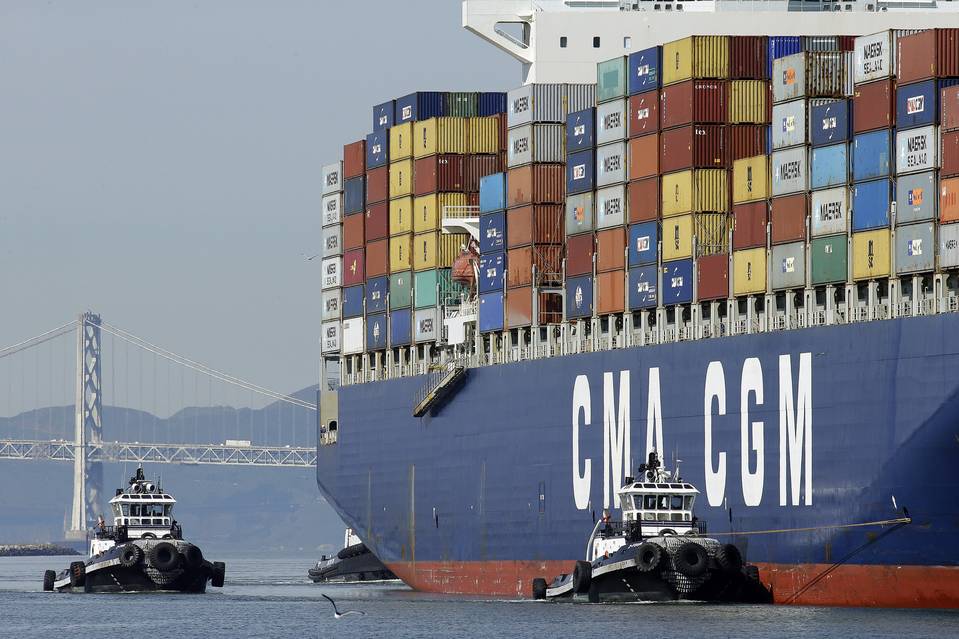- China Exports to Nigeria Hit $75bn; Nigeria’s just $9.6bn
Recently calculated total exports to Nigeria from China amounted to about $75 billion while on the Nigerian side, total export to China was about $9.6 billion.
This took the total trade volume between the two countries, as at July this year, to about $85 billion.
The Economic and Commercial Councilor, China Embassy in Nigeria, Zhaor Lin Xiang, disclosed this yesterday at a press briefing on the outcomes of the Forum on China-Africa Cooperation (FOCAC) Beijing summit.
An elated Xiang said these figures indicated that Chinese products were very popular in Nigeria and they are meeting the needs of Nigerians,” he noted.
Similarly, the British High Commissioner to Nigeria, Mr. Paul Arkwright, yesterday, said the United Kingdom was poised to double the annual trade volume of £4.2 billion between the two countries..
The Chinese Councilor, Lin Xiang explained that the figures he presented were based on the trade volume recorded as at July this year, adding that the Chinese government was planning to increase economic ties between Nigeria and the Asian continent.
Also speaking at the media parley, the Charge’d Affair, Chinese Embassy, Lin Jing said that the Beijing action plan 2019-2021 has as a cardinal point of action, the industrial and capacity building programme for African countries.
According to him, “This will translate to the establishment of 10 Lubab training centres; the centres will equip Africans with unique manufacturing skills, and provide 50,000 scholarships opportunities.”
Lin Jing also stated that China would continue to explore means that would improve economic and bilateral cooperation with Nigeria.
He said China would support Nigeria in manufacturing products that meet international standards, adding that in November, China would host an import-export trade fair meant to attract more trade and investments from other countries, as a way of improving bilateral trade.
The Embassy of China in Nigeria however frowned at the insinuation that China was on a mission to colonise Africa, adding that the Chinese president was doing all he could to ensure equality in all his dealings with the continent.
“As you all know, President Xi Jinping presented five major approaches that will guide China relationship with Africa.
“These approaches are: No interference with African countries pursuit in the development path; No interference in internal affairs; No imposition of our will on African countries; No attachment of political gains,” Jing said.
On the United Kingdom’s trade relations with Nigeria, the British High Commissioner Arkwright said: “The current volume of our trade relationship is £4.2 billion annually and our ambition is to double it to reach £8 billion by 2030.
“We are looking at how we can improve our economic engagements and to make it a win-win affair,” he stressed, restating the ties between both countries.
He said the United Kingdom was determined to get back to the number one spot in terms of trade with Nigeria.
Arkwright noted that British companies had been operating in Nigeria for so many years and that they were still doing well.
The Envoy, who pointed out that 5,000 Nigerians join the labour market daily, said the United Kingdom would do more to help create jobs in the country.
The envoy described the meeting with the Sokoto State Investment Company as fruitful, adding that he saw opportunities in the areas of agriculture, mining and leather in the state.
“I will go back to Abuja and my country and talk about the abundant opportunities in the state. I will talk and encourage my people to come and invest in Sokoto.”
In his remarks, the Chairman of the company, Alhaji Tukur Umar, urged the envoy to help showcase the potential of the state in the global arena.
“We have abundant opportunities in Sokoto. We are endowed with a lot of natural resources, fertile soil for agricultural investment and leather, among others. We have also keyed into the federal government’s ease of doing business,” he added.


 Forex4 weeks ago
Forex4 weeks ago
 Naira4 weeks ago
Naira4 weeks ago
 Billionaire Watch3 weeks ago
Billionaire Watch3 weeks ago



 Naira4 weeks ago
Naira4 weeks ago






 Naira3 weeks ago
Naira3 weeks ago


 Naira2 weeks ago
Naira2 weeks ago






 Naira2 weeks ago
Naira2 weeks ago
 Economy4 weeks ago
Economy4 weeks ago























